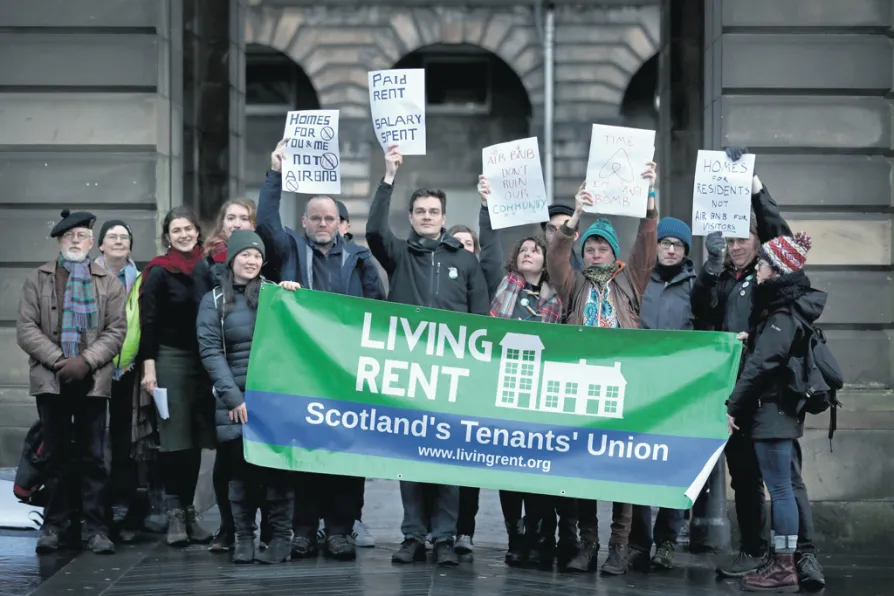Living Rent launches charter against Universal Credit rent-arrears evictions

 Living Rent campaigners
Living Rent campaigners
SCOTLAND’s tenants’ union launched a charter today asking housing associations in Glasgow to commit to ending evictions for rent arrears caused by Universal Credit (UC).
Living Rent unveiled their pledge with the support of politicians and charities in a bid to protect tenants living in the city.
Outlining their fears that the benefits system presents a threat to people’s right to housing, the group claimed that UC could put tenants under threat of eviction.
More from this author

It is ‘unfathomable’ that staff are having to keep doors and windows open and ask pupils to layer up for a second winter, Scottish Teachers for Positive Change and Wellbeing says
Similar stories















